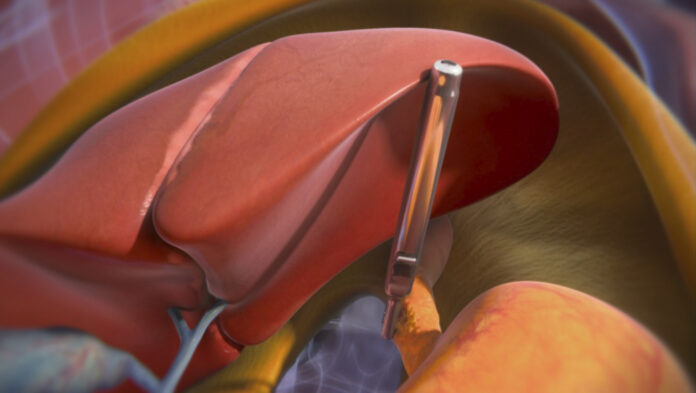MOUNTAIN VIEW, Calif.– Levita Magnetics has announced that the U.S. Food and Drug Administration has expanded the clearance of its Magnetic Surgical System (MSS) with the MARS® platform, authorizing its use in minimally invasive bariatric and hiatal hernia repair surgeries. The move significantly broadens the clinical scope of Levita’s magnetic technology and enhances its role in treating patients with obesity-related conditions.
The newly approved use of the company’s Dynamic Magnetic Positioning™ technology allows surgeons to retract the liver more effectively during abdominal surgeries, especially in patients with high BMI or complex anatomical challenges. The update also includes the release of a new 12.5mm magnetic grasper designed to provide better control and visualization by allowing a more central grip on the liver, rather than pulling from the edges.
“With the improved grasper and magnetic liver retraction, I can now perform complex bariatric and hernia procedures with fewer incisions and better visibility,” said Dr. Chad Carlton, a bariatric surgeon based in Dallas. “This is a less invasive, smarter approach that results in less pain and faster recovery for patients with challenging anatomy.”
Levita’s system departs from conventional robotic surgical platforms that often require multiple incisions and rigid tools. Instead, the MARS platform leverages internal magnetic instruments to reposition organs, helping reduce tissue trauma while maintaining surgical precision. The result is a streamlined approach to procedures like sleeve gastrectomy or hiatal hernia repair that demands fewer external cuts and offers potentially quicker patient recovery times.
“This milestone reflects our ongoing mission to make surgery more effective by making it less invasive,” said Dr. Alberto Rodriguez-Navarro, founder and CEO of Levita Magnetics. “Expanding the use of our platform to bariatric and hernia repair cases allows more patients to benefit from advanced surgical care with fewer complications.”
With FDA’s latest clearance, Levita is poised to increase adoption of its MARS technology in both hospitals and outpatient surgical centers, offering a next-generation alternative to traditional laparoscopy and robotic systems—particularly for patients with obesity and other complex surgical needs.


